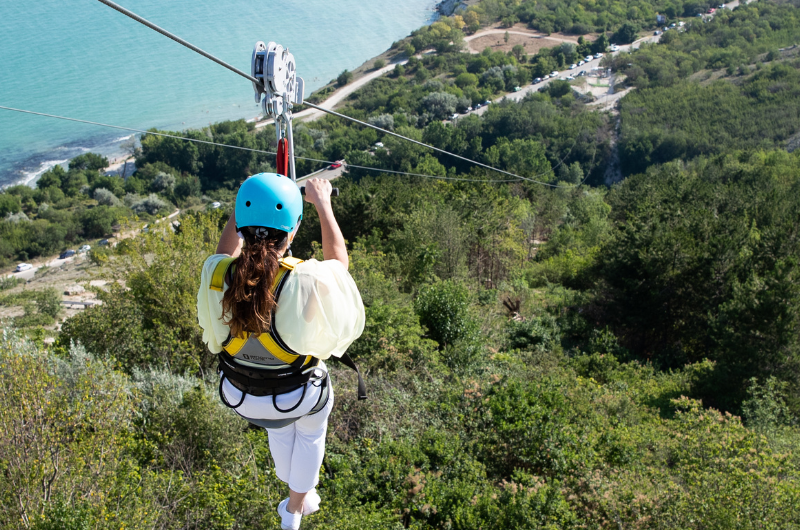I have been fortunate enough to go on yoga retreats in incredible locations throughout my adult life. Yoga retreats, for me, are digging deep with oneself, taking a break for self-care, and being within the community. For me, the collective group energy on retreat is so powerful, whether it be in meditation, having a meal together or in deep breathing conversation. The conversation you experience on retreat is rich and fulfilling because you are in the deeper headspace.That can be so rewarding for a person.
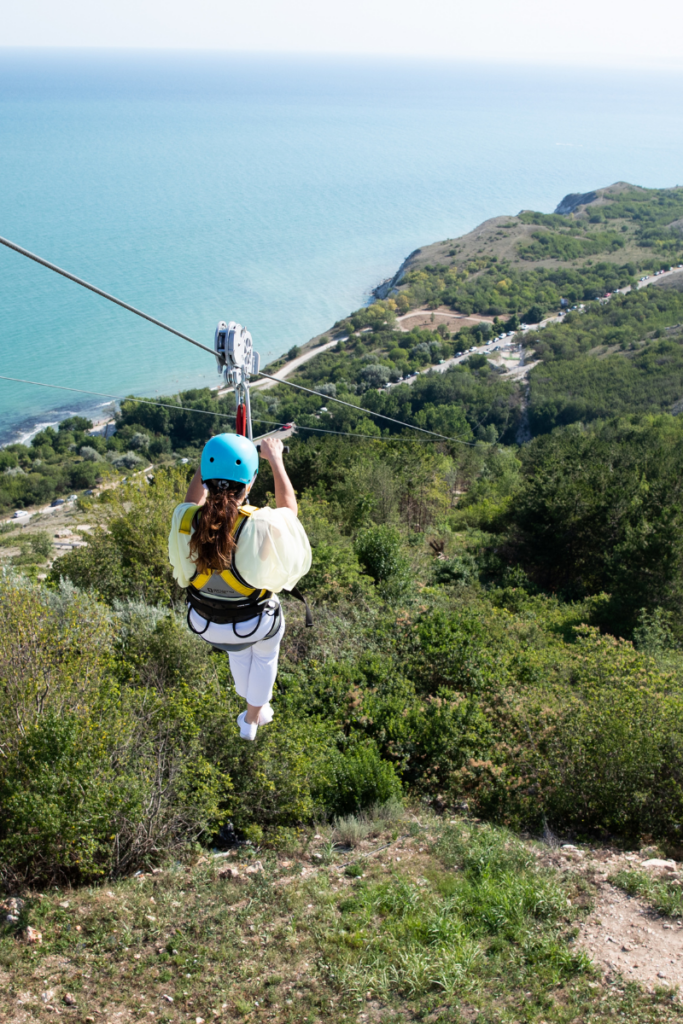 My memories from retreats include: Watching the sunrise over a secluded beach in Costa Rica, Zipping through the rainforest on a zipline, feeling like Tarzan swinging over the trees, swimming with dolphins in the Pacific Ocean with a group of eight retreaters,while schools of dolphins surround and swim with us. It was an incredible experience. surrounding us and swimming with us was an incredible experience. Swimming over a gorgeous reef in the bright blue waters of the Caribbean Sea.And of course, the yoga, The guiding practice which puts you in the right headspace to make this trip.
My memories from retreats include: Watching the sunrise over a secluded beach in Costa Rica, Zipping through the rainforest on a zipline, feeling like Tarzan swinging over the trees, swimming with dolphins in the Pacific Ocean with a group of eight retreaters,while schools of dolphins surround and swim with us. It was an incredible experience. surrounding us and swimming with us was an incredible experience. Swimming over a gorgeous reef in the bright blue waters of the Caribbean Sea.And of course, the yoga, The guiding practice which puts you in the right headspace to make this trip.
This experience is different from a regular trip. Getting in the mindspace of peace. where those experiences are so much richer than regular vacations. And so that it becomes an exercise in self-care in self-nourishment. I will treasure all of my experiences. Great connections I have made on retreat that will last forever. Retreat is truly a revitalizing experience. It enriches your life, and allows you to come back to the world rejuvenated. Rejuvenated by the sun, by connection, by laughter, by yoga, and a deeper connection with yourself.
Even though, I have experienced such incredible retreat and travel destinations,whenever I see a new retreat destination that want to go to, which are primarily destinations where my teacher will teach, I think,” Is this location accessible to me?” I am a person with Cerebral Palsy, which is a disability that affects my movement and speech.Despite the well known fact that I like to challenge myself, am really a person that really wants to live life,and will travel terrain, even if it may be difficult,It has been suggested on 4 occasions that I not participate on a retreat because the terrain is too difficult. Of course, this is very frustrating to me when I am told that this retreat is not open to me. Open to me because the terrain may be too hard or the altitude may be too high, or that the trails may be too difficult as would be in Machu picchu. Because I want to experience this with all my heart. By taking this away from me, it is taking away the chance for me to study with my teacher, which is something I treasure doing in these incredible locations.
As I have stated before, I have had some incredible experiences on retreat,despite the fact that I haven’t been able to attend every retreat I’ve wanted to. Even though I was able to attend these retreats, some of these places where I retreated were more accessible than others to people with disabilities. None were totally accessible and had many obstacles. For example, at one place I had to, to hold onto a person in order to walk around the property. Although people that were on retreat were more than willing to help me out, as an adult who values his independence and ability, this is hard for me. The yoga space at almost all of these facilities were upstairs, or down inaccessible paths. Now, I could get you all of these yoga spaces, but being on a yoga retreat, you would think the first thing a property owner should do is make the place where the primary practice is held, accessible to everyone. Even though I have been able to overcome obstacles and go on retreat in these awesome places. When it comes to a person with a more advanced disability, or uses a mobility device, such as a wheelchair, they would have no chance of going on most of the retreats I have been to.
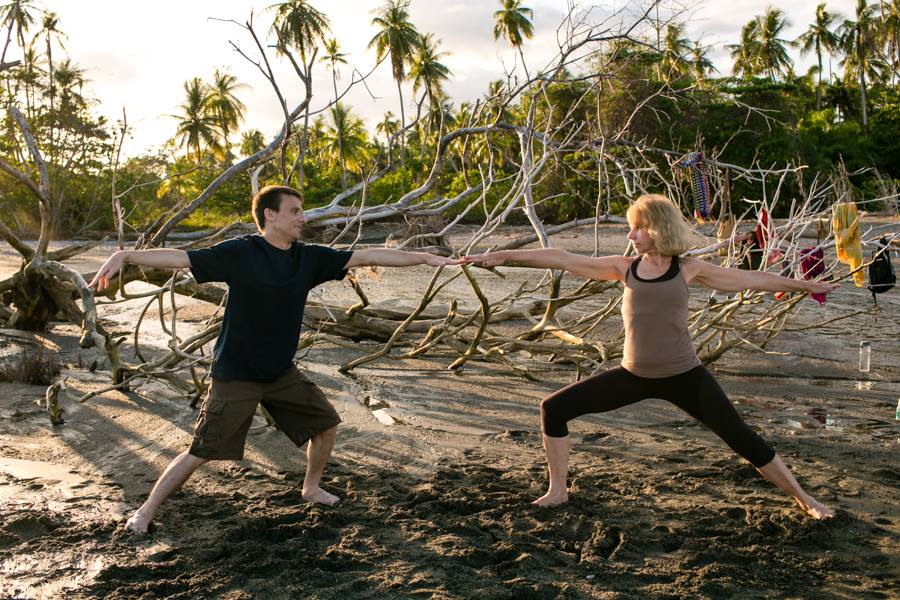
Before describing what is needed for accessibility for people with disabilities, I would like to talk a little bit about the need for yoga retreats for people with disabilities. In a society where people with disabilities often feel discriminated against in many phases of their life, they are required to go to doctor appointments or cannot find a job in the field they want, are unable to get a leg up in an ableist society. Retreats can be very nourishing for them.
In offering them an accessible place to go, they are able to rejuvenate and refresh, and come back into society. With that openness and freshness, this is really important. There is a growing, accessible yoga movement in society today and a press of making the practice accessible to everyone. It is imperative, as we make the practice more accessible than it is, that the accessibility extends to retreat locations. So, we are able to invite people with disabilities to enjoy the richness of retreat. I understand, some retreat places that are indoors may be more accessible than outdoor retreat places, but people with disabilities are individuals with different interests, and they should be able to decide where they will wanna go and have several options, just like anyone else.
When we think of accessibility, we often think, can a person with a disability or in a wheelchair get in the door or access the basement. When looking at a yoga retreat, the accessibility extends to many things other than the front door. It extends to things like- Is the lodging accessible? Is the shower accessible? The toilet? The yoga space? The activities and other aspects of the retreat. People often think when they hear that they need to make a space accessible for people with disabilities. Their first thought might be “Oh my gosh, that will cost me a fortune.”Instead of thinking that you are just making a space accessible for a person with a disability, it may be helpful to know that by making a space accessible, you are benefiting many different populations and that principle is called universal design. Universal Design is the design in composition of an environment so that it can be accessed, understood and used to the greatest extent passable by all people, regardless of their size, age, ability or disability.
For example, think of a walking shower. Yes, you may first think of benefiting a person in a wheelchair. However, you would be benefiting someone with a large statue, or someone who is older and does not move it well, or someone who has had an injury that may or may not go away. With universal design, you are making an environment accessible, usable and pleasurable to use. Everyone benefits!
Above, I alluded to the example of getting to the yoga space and my experiences retreating. Many of the walkways to those yoga spaces were rocks. They were not paved and were not easily accessible. Someone who is older, who is in a wheelchair, who uses crutches, would have a tough time getting to that yoga space. The solution does not have to be elaborate, but just make the surface smooth. So that way of getting to the yoga space is accessible for everyone and everyone can use it.
One of the things that I mentioned that was very meaningful to me is the excursions on yoga retreat. Finding accessible excursions does not mean that the excursion has to be any less enjoyable, but instead looking for options that everyone can participate in, regardless of their accessibility level. For example, if you are going on a boat cruise. Look for a boat that is accessible. If you are going hiking, look for a trail that is accessible. I understand, on the True Nature website that most of the retreat locations are out of the United States; therefore, some countries may not have accessibility guidelines. However, it is important to make spaces, wherever you are, that are accessible to people with disabilities.
Welcoming a disability and people with different needs, like age or a different body type, is important. This not only welcomes people with disabilities, but if a retreat center is accessible, it increases your opportunity to bring in revenue. Because you are welcoming not only the guests you welcomed in before, but you are extending the invitation to another population, a population that may have previously been exempt by your center.
As the accessible yoga movement grows into the business of accessible yoga travel and/ or accessible yoga retreating. People with disabilities are able to experience the power of retreat. It allows people with disabilities to easefully explore new countries, through hotels and activities that are accessible. Shouldn’t people with disabilities be able to choose a yoga retreat in a new country and just be able to go? To be able to attend a retreat in a new country, just because they want to, without having to be restricted? To see a sunrise over the ocean, a sunset over a mountain, to experience the rainforest and view the wildlife?
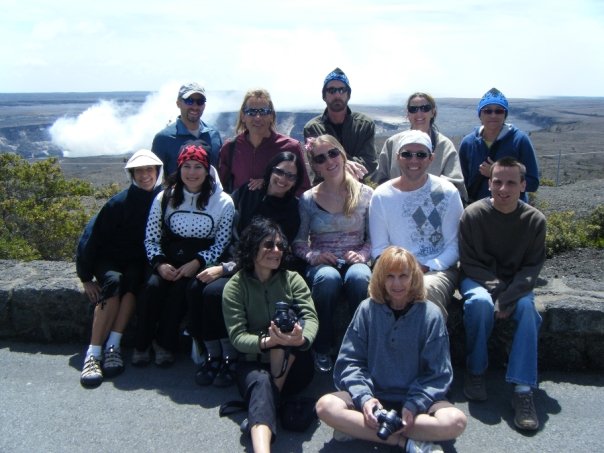 I am not an expert on which countries offer truly accessible locations. But I do know this, to go on a yoga retreat, with a teacher you love, is a gift. It is physically and mentally rejuvenating. Retreats offer the opportunity for the much needed self care that every person should be entitled to. The opportunity to get away from the hustle and bustle of everyday life can be life changing.
I am not an expert on which countries offer truly accessible locations. But I do know this, to go on a yoga retreat, with a teacher you love, is a gift. It is physically and mentally rejuvenating. Retreats offer the opportunity for the much needed self care that every person should be entitled to. The opportunity to get away from the hustle and bustle of everyday life can be life changing.
Wouldn’t it be amazing if a person in a wheelchair was able to experience those gifts of retreat without having to ask dozens of questions and/or encounter barriers at every corner? To be able to go on retreat, move around without obstacles, participate in activities, and just be another member of the group?
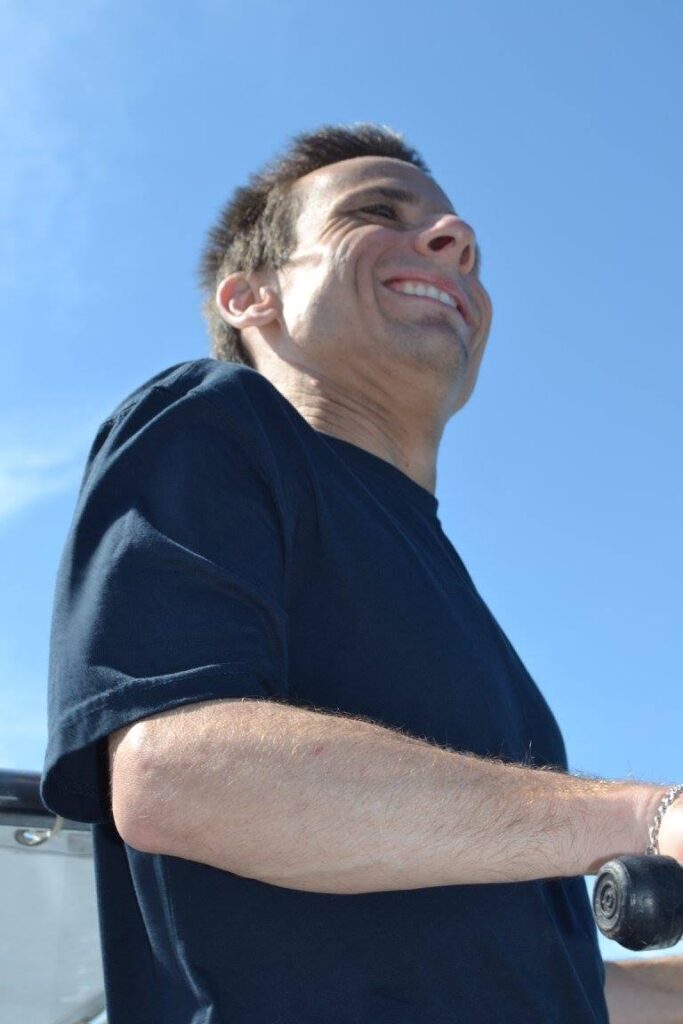 Ryan McGraw approaches every class with the belief that everyone can do yoga. As a person with cerebral palsy who has been practicing yoga for 15 years, Ryan is well aware that yoga poses can be adapted to meet the needs of the student, no matter their level of ability.
Ryan McGraw approaches every class with the belief that everyone can do yoga. As a person with cerebral palsy who has been practicing yoga for 15 years, Ryan is well aware that yoga poses can be adapted to meet the needs of the student, no matter their level of ability.
Ryan earned his 200-hour yoga teaching certificate from Prairie Yoga in 2011 and completed two adaptive yoga teacher trainings with Matthew Sanford. He received a Master’s degree in Disability and Development from the University of Illinois at Chicago in 2013 and created an adapted yoga manual for people with disabilities for his master’s thesis. He continues his studies in accessible yoga with Gabriel Halpern in Chicago.

